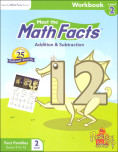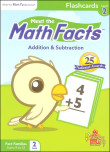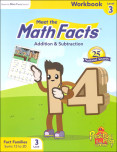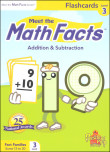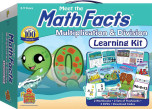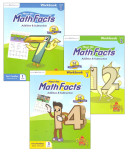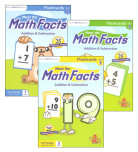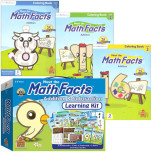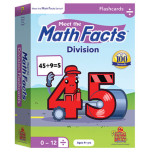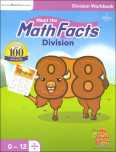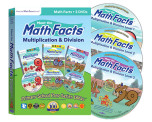We use cookies to make your experience better. To comply with the new e-Privacy directive, we need to ask for your consent to set the cookies. Learn more.
Mastering basic math skills is foundational for higher level learning and for life. This all begins at a young age as children learn basic addition and subtraction. This multisensory program helps children build a firm foundation in that area. Divided into 3 levels, this series employs DVD lessons, coloring books, flashcards, and workbooks for a variety of exposure to the math facts 0-20. Use the materials in a way that fits your style and time frame; there are no lesson plans that tell you how to use these products. At each level, different math facts are presented - 0-8 for level 1, 9-12 for level 2, and 13-20 for level 3. All items for that level correspond to and reinforce the math facts specific to that level.
DVDs offer mini lessons, approximately 15 minutes each, virtual flash cards that go over the fact families, and a song to help children remember basic facts. The characters in the DVDs match those on the flashcards, in the workbooks, and on the coloring pages.
The 100-page Workbooks provide full color opportunities for children to fill in numbers, color, complete equations, visual story problems, and more. The characters and personalities of the numbers in the DVD lessons are also found within the pages of the workbook. Each book ends with "Test Your Skills" pages, which will allow them to practice the facts they learned in the book. There are no answer keys in the books.
Coloring Books provide blackline pages, to reinforce addition and subtraction facts. Every two pages is a scene (pictures are large enough for little hands to color) with a simple math problem printed at the top. The scene is representational of the math problem. For example, two number 2s that look like horses are pulling a carriage with the number 4, which looks like a soldier saluting. These pictures might seem silly to an adult, but the picture illustration helps solidify the concept in the mind of a child.
Flashcards use the number characters to form vertical problems with answers on one side of each card, and regular black numbers (without the answer) form the same problem on the reverse. The number characters tend to work well for more visual children who need some type of relationship to the numbers. The number characters are the same as those found on the DVDs and in the workbooks and coloring books. Level 1 has 98 cards, level 2 and 3 have 72 cards each and they measure 5.25x3.5".
We have this graded for children in 1st through 3rd, but the visual aspect appeals to even younger children - you could begin with the flashcards and DVDs as young as 2 or 3 years old. Children at that age may not have the fine motor skills to do the workbooks and coloring books. Get started laying your math foundation with this family of lovable number characters. Children will grow to recognize them and look forward to their math time. ~ Donna










